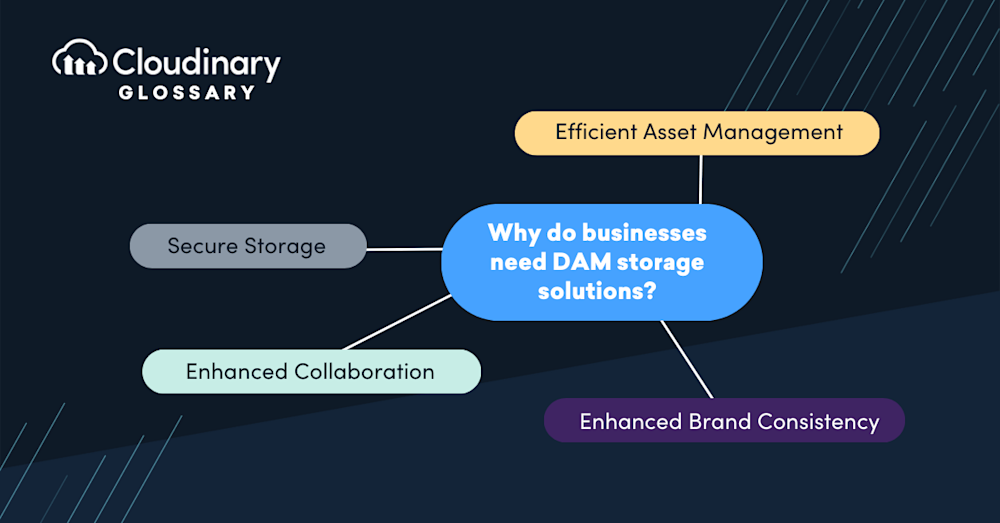What Is DAM Storage?
DAM storage, or Digital Asset Management storage, is a system designed to efficiently store, manage, organize, and retrieve digital assets such as images, videos, audio files, and documents. These storage systems can take many forms, including on-premise servers, cloud-based storage, or a combination. By consolidating digital assets into a single, centralized storage solution, organizations can streamline their workflows, improve access to critical files, and maintain control over their valuable digital resources.
The unique features of DAM storage systems, such as powerful search functionality, version control, and metadata management, help to eliminate the time-consuming challenges of locating pertinent digital assets or worrying about file duplication. Additionally, they foster seamless collaboration and efficient sharing of resources, which is crucial in today’s fast-paced business environment.
What Are The Benefits Of Using a DAM?
The advantages of using a DAM system go beyond just storage. This powerful tool offers many benefits, making it an indispensable component in digital asset management. Here are some key advantages.
- Improved Accessibility. With a DAM, your digital assets are available anytime, anywhere, thanks to cloud technology.
- Efficient Organization. Powerful search functionality combined with metadata tagging makes locating a specific asset quick and effortless.
- Streamlined Collaboration. DAM systems facilitate easily sharing assets, enhancing teamwork across departments or geographical locations.
- Robust Security. With built-in protections, DAM systems protect your valuable assets against potential threats.
- Cost and Time Savings. A DAM system can lead to significant time and cost savings by improving operational efficiency and eliminating redundancy.
- Brand Consistency. A DAM system helps maintain brand consistency by providing a single source of truth for all digital assets.
Using a DAM system can enhance operational effectiveness, promoting an organized and productive working environment.
Why Do Businesses Need DAM Storage?
In an era where businesses manage a vast array of digital assets daily, the need for effective DAM storage is more crucial than ever. Let’s take a closer look at why:
- Efficient Asset Management. A DAM system helps businesses streamline how they store, organize, and retrieve digital assets, which is vital in an increasingly digital business environment.
- Improved Collaboration. DAM storage provides a central location for assets that can be accessed and utilized by multiple team members, thereby facilitating seamless sharing and cooperation.
- Enhanced Brand Consistency. By housing all digital assets under one roof, businesses ensure that all brand-related material remains consistent and up-to-date.
- Secure Storage. DAM systems offer robust security features, protecting valuable digital assets from threats and breaches.
In a nutshell, businesses require a robust DAM storage solution to navigate the complexities of managing a vast digital universe effectively and ensure the efficient and secure handling of their digital assets.
Final Thoughts
DAM storage systems aren’t merely about storing digital assets; they are critical in streamlining workflows, enhancing collaboration, ensuring brand consistency, and safeguarding business resources. Managing these assets efficiently is vital as businesses become more reliant on digital assets. Investing in a robust DAM storage solution like Cloudinary can make a significant difference in a business’s overall productivity and success.
As a leading provider of cloud-based DAM solutions, Cloudinary goes beyond storage and offers a suite of features designed to optimize your organization’s digital media management. Whether a small business or a large enterprise, Cloudinary provides a customizable, scalable, and secure solution to meet your digital asset management needs.
Explore what Cloudinary can do for your business today. Get in touch with us to learn more, or start a free trial today.
Additional Resources You May Find Useful:



